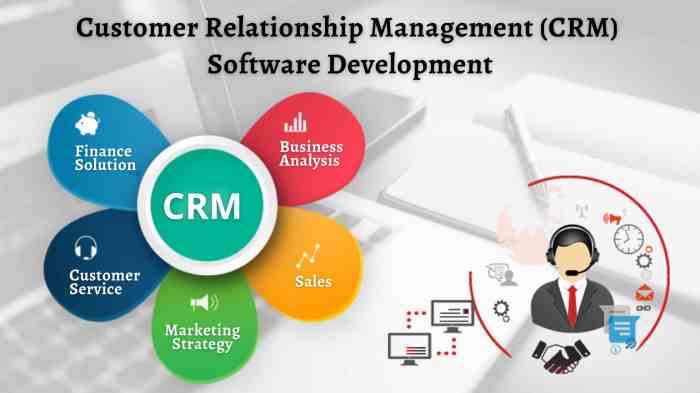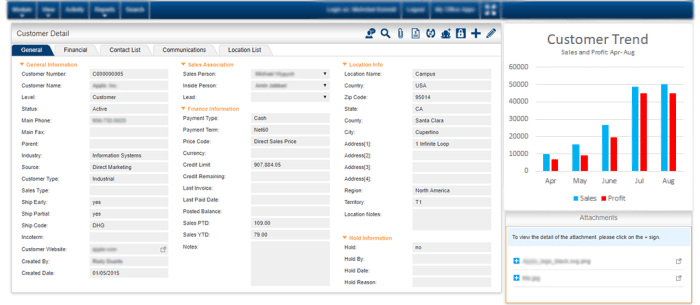Key Features of Electrical CRM Software

Halo, kawan-kawan! Let’s talk about how Electrical CRM software can make your Palembang-based electrical businesssangat* efficient and profitable! Imagine a world where managing jobs, tracking inventory, and communicating with clients is a breeze – no more headaches, just smooth sailing! That’s the power of a good Electrical CRM.
Electrical CRM software streamlines various aspects of your business, boosting productivity and improving customer satisfaction. It’s like having a super-efficient assistant who handles all the tedious tasks, freeing you up to focus on what you do best: providing excellent electrical services. Think of it as your secret weapon for growth!
Essential Modules in Electrical CRM Systems
Several key modules work together to make an Electrical CRM system truly effective. These modules are designed to address the specific needs of electrical businesses, ensuring smooth operation and growth.
- Job Management: This module allows you to efficiently manage all aspects of a job, from initial quote to final invoice. You can track progress, assign tasks to technicians, and schedule appointments with ease. This eliminates the chaos of scattered paperwork and ensures that no job falls through the cracks.
- Inventory Tracking: Keeping track of your inventory is crucial for efficient operations. This module provides a real-time overview of your stock levels, allowing you to avoid costly stockouts and prevent delays on projects. It can also help you identify slow-moving items and optimize your purchasing strategies. Imagine effortlessly knowing exactly how many circuit breakers you have in stock at any given moment!
- Client Communication: Effective communication is key to customer satisfaction. This module allows you to easily communicate with clients through various channels, such as email, SMS, and even integrated calling features. You can send automated updates on job progress, request feedback, and manage client relationships efficiently. This fosters strong client relationships, leading to repeat business and positive word-of-mouth referrals.
Examples of Improved Efficiency Through CRM Modules
Let’s see how these modules contribute to efficiency in a real-world scenario.
- Job Management Example: Imagine a scenario where you’re handling multiple jobs simultaneously. The job management module helps you prioritize tasks, assign technicians to specific jobs, and track their progress in real-time. This prevents scheduling conflicts and ensures timely completion of projects, boosting customer satisfaction.
- Inventory Tracking Example: Without an effective inventory tracking system, you might find yourself running out of essential components during a job, causing delays and potentially frustrating your clients. With a CRM, you can easily check stock levels and order replacements before they run out, ensuring a smooth workflow.
- Client Communication Example: Prompt and clear communication is vital. The CRM allows you to send automated updates to clients, keeping them informed about the status of their jobs. This transparency builds trust and reduces the need for unnecessary calls and emails, freeing up your time.
Comparison of Electrical CRM Software Packages
Different CRM software packages offer varying features. Here’s a comparison of three popular options:
| Software Name | Job Management Features | Inventory Tracking Features | Client Communication Features |
|---|---|---|---|
| Software A | Job scheduling, task assignment, progress tracking, automated notifications | Real-time stock levels, low-stock alerts, inventory reports | Email integration, SMS notifications, client portal access |
| Software B | Similar to Software A, plus mobile access and GPS tracking for technicians | Similar to Software A, plus barcode scanning and integration with purchasing platforms | Similar to Software A, plus automated email campaigns and customer surveys |
| Software C | Basic job scheduling and tracking, limited task assignment | Basic stock level tracking, no advanced reporting | Email integration only |
Integration Capabilities of Electrical CRM
The true power of an Electrical CRM lies in its ability to integrate with other business tools. This creates a seamless workflow and eliminates data silos.
- Accounting Software Integration: Seamlessly transfer data between your CRM and accounting software, automating invoicing and financial reporting. This eliminates manual data entry and reduces the risk of errors.
- Scheduling App Integration: Integrate with scheduling apps to optimize technician schedules, minimizing travel time and maximizing productivity. This ensures efficient resource allocation and timely job completion.
Potential Integrations and Their Benefits
Here’s a list of potential integrations and their benefits for your electrical business.
- Accounting Software (e.g., Xero, QuickBooks): Automated invoicing, accurate financial reporting, reduced manual data entry.
- Scheduling Apps (e.g., Calendly, Acuity Scheduling): Optimized technician schedules, reduced travel time, improved customer appointment management.
- Mapping and Navigation Apps (e.g., Google Maps): Efficient route planning for technicians, reduced travel time and fuel costs.
- Payment Gateways (e.g., Stripe, PayPal): Streamlined payment processing, faster invoice payments, improved cash flow.
Benefits of Implementing an Electrical CRM

Implementing an electrical CRM isn’t just about upgrading your software; it’s about electrifying your business with enhanced efficiency and customer satisfaction! Think of it as upgrading your entire electrical grid – smoother power flow, less downtime, and brighter lights for everyone involved. This section will illuminate the advantages of embracing this powerful tool.Improved Customer Relationship ManagementAn electrical CRM system acts as a central hub for all customer interactions.
It consolidates customer data – contact information, service history, project details, and even past communication – into a single, easily accessible location. This unified view allows for personalized service, faster response times, and a more proactive approach to customer needs. Imagine a technician arriving at a customer’s home already knowing the history of their electrical system, prepared to address specific issues based on past repairs or upgrades.
This level of personalized service fosters stronger customer loyalty and positive word-of-mouth referrals, leading to increased business growth.
Operational Efficiency Enhancement, Electrical crm
An electrical CRM streamlines daily operations, reducing wasted time and resources. Automated scheduling features optimize technician routes, minimizing travel time and maximizing the number of service calls completed daily. Automated reminders for follow-ups on quotes or installations ensure no opportunities are missed. For example, a CRM can automatically send a thank-you email after a service call or a reminder to follow up on a pending quote, ensuring that no potential business is overlooked.
This increased efficiency directly translates to higher profitability and improved customer satisfaction.
Cost Savings through CRM Implementation
The initial investment in an electrical CRM quickly pays for itself through various cost savings. Reduced administrative overhead, streamlined processes, and minimized errors all contribute to significant cost reductions. For instance, eliminating manual data entry, reducing paperwork, and minimizing duplicated efforts can save considerable time and resources. Furthermore, improved scheduling minimizes fuel consumption and travel time, directly impacting operational expenses.
By accurately tracking inventory and service history, the CRM helps optimize stock management, preventing overstocking and reducing waste.
Enhanced Reporting and Analytics Capabilities
Electrical CRMs provide comprehensive reporting and analytics tools, offering valuable insights into business performance. Detailed reports on service calls, sales trends, customer satisfaction, and technician performance enable data-driven decision-making. For example, analyzing service call data can reveal common issues, enabling proactive maintenance strategies and reducing future service calls. Tracking sales trends allows for better forecasting and inventory management.
This data-driven approach ensures that the business is always operating at peak efficiency and making informed decisions to drive future growth.
Improved Team Collaboration and Communication
An electrical CRM fosters seamless collaboration and communication within the team. Real-time updates on service calls, project status, and customer interactions ensure everyone is on the same page. Centralized communication channels minimize confusion and delays. For instance, technicians can easily access customer information and service history from the field, eliminating the need for multiple phone calls or back-and-forth emails.
This improved communication fosters a more efficient and cohesive team, ultimately benefiting both the business and its customers.
Effective client relationship management (CRM) systems are crucial for optimizing operational efficiency across diverse sectors. While electrical CRM applications focus on streamlining interactions within the electrical industry, the principles extend to other fields. For example, consider the complexities of managing client relationships in large law firms, as detailed in this resource on legal practice CRM for large law firms.
Adapting CRM strategies to specific industry needs, such as those in the legal sector, highlights the versatile application of core CRM principles across various professional domains.



